ON THE AGENDA: Twentynine Palms Planning Commission, September 16, 2025
A Study Session on animal keeping, community gardens, and Temporary Use Permits
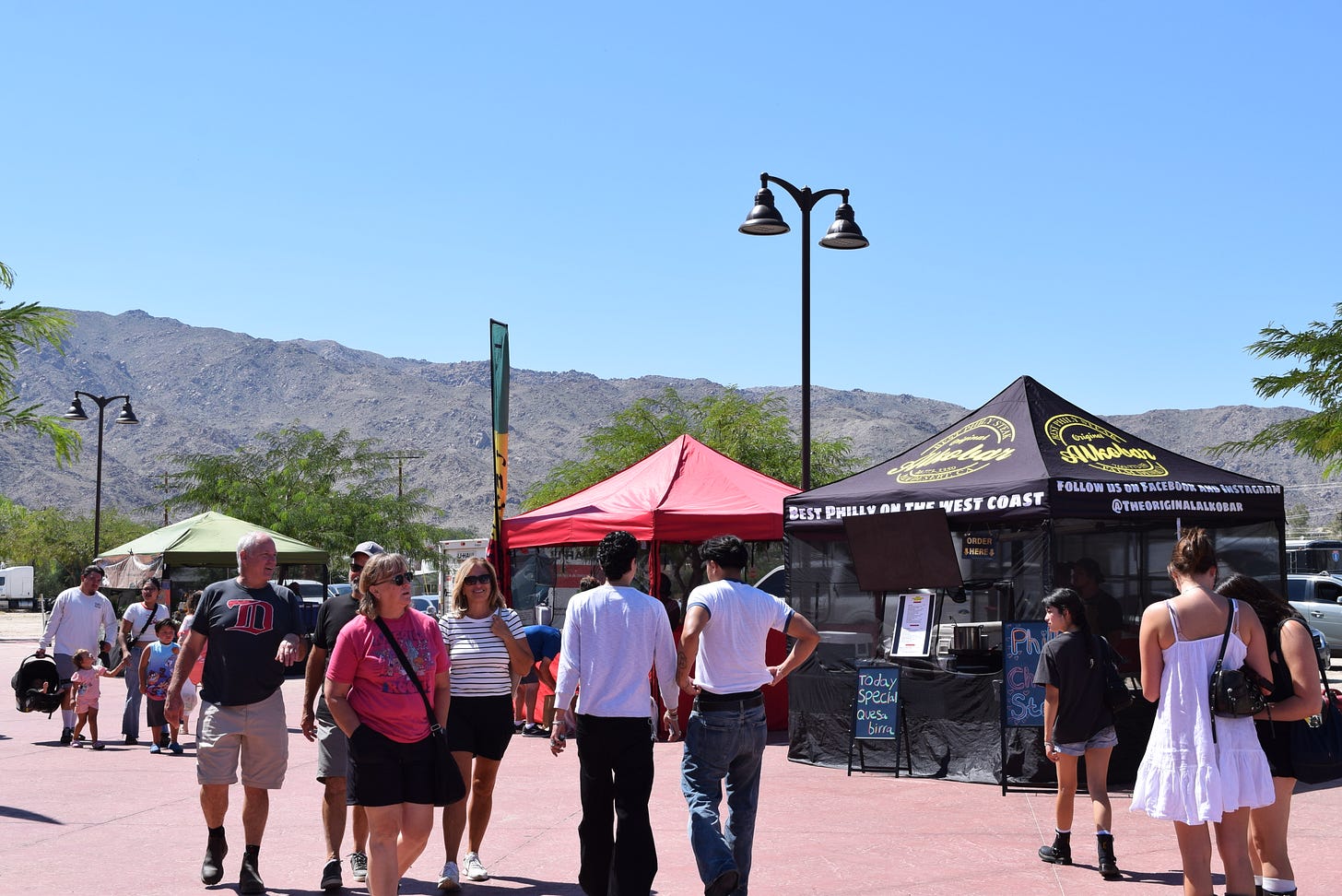
The Twentynine Palms Planning Commission will hold its regularly scheduled meeting this Tuesday, September 16, at 5 pm, where they will host a study session on a handful of proposed municipal code updates. This is the first Planning Commission meeting since June 25, where Planning Commissioners faced a packed house and granted a preliminary approval of the Ofland Resort development.
A light 46-page agenda packet for this meeting is linked here. Study session items include changes to development code sections on animal keeping, a discussion on greenhouses and community gardens, along with possible revisions to Temporary Use Permit regulations.
Following approval of last meeting’s minutes1 and updates from Community Development Director Keith Gardner, the study session will commence. These sessions are not typically recorded so if these topics are of interest, attend in person or submit comments via email.
PUBLIC COMMENTS
After Planning Commission announcements, residents can comment on items not on the agenda. Public comments on agenda items will be requested when the item is discussed. Fill out a green comment sheet for public or agenda item comments and hand it to the staff, usually sitting at the desk at the front of the room on the right side. Residents typically have three minutes to make their comments.
You may email comments to the Planning Commission and the Community Development Director, and request that comments be read at the meeting.
STUDY SESSION
2. Chapter 19.34: Temporary Use Permit regulations
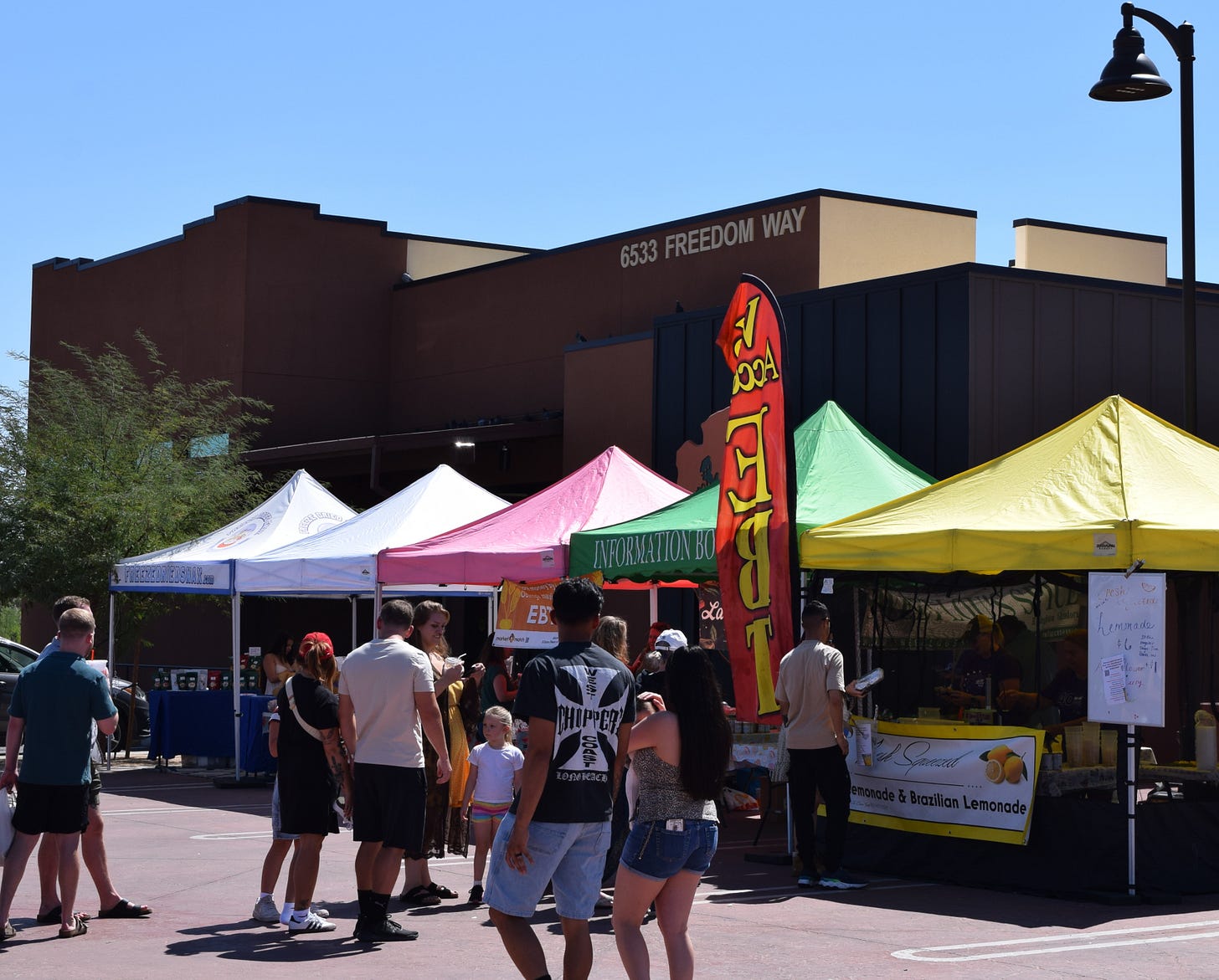
The Twentynine Palms Municipal Code contains regulations on a number of activities that take place within City boundaries, from business license regulations, City development codes, revenue and finance ordinances, highways and road regulations, buildings, construction, and everything in between.
Since assuming the position of Community Development Director in 2022, Keith Gardner and City staff have made efforts to chip away at the City code to fine-tune, streamline, and clean up language inconsistencies that are codified into the vast and lengthy text (over 800 pages!)
Chapter 19 of the Municipal Ordinance contains the City Development Code, which, according to the City website, was last comprehensively updated in 2016.
Section 19.34 pertains to Temporary Use Permit regulations. According to the City Development Code:
The purpose of this Chapter is to establish standards for temporary activities and uses to ensure the overall health, safety and general welfare of the community is maintained and to establish permit and processing requirements of these temporary activities and uses.
This applies to activities such as farmers markets, carnivals or festivals, outdoor craft shows and art exhibits, Christmas tree sales lots, construction site storage yards, temporary storage containers, drop-off bins for clothing donations or recyclable materials, model homes, and sidewalk or parking lot sales.
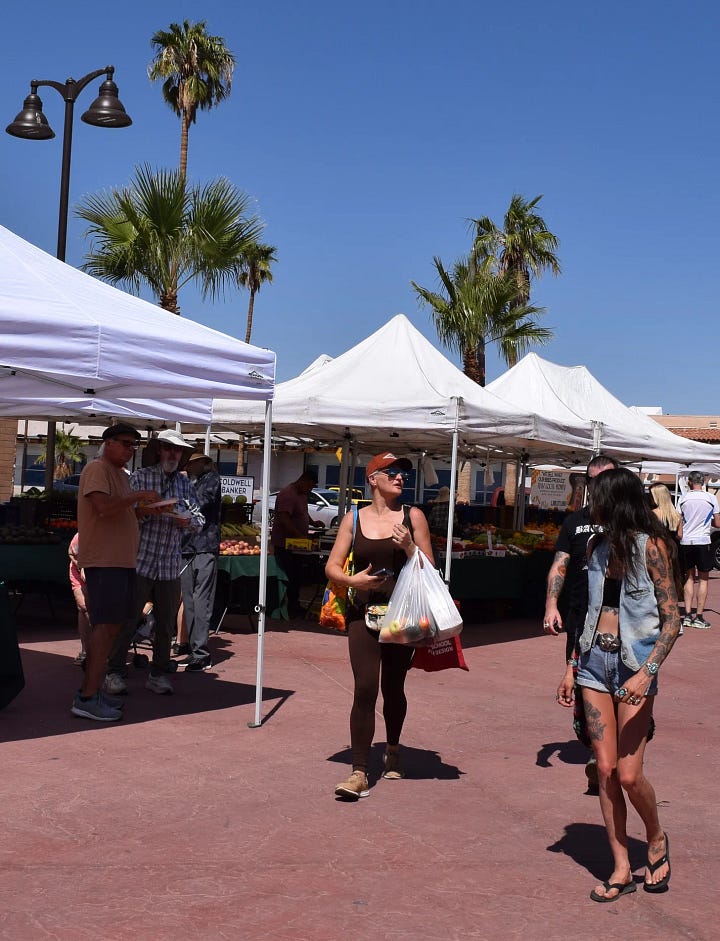
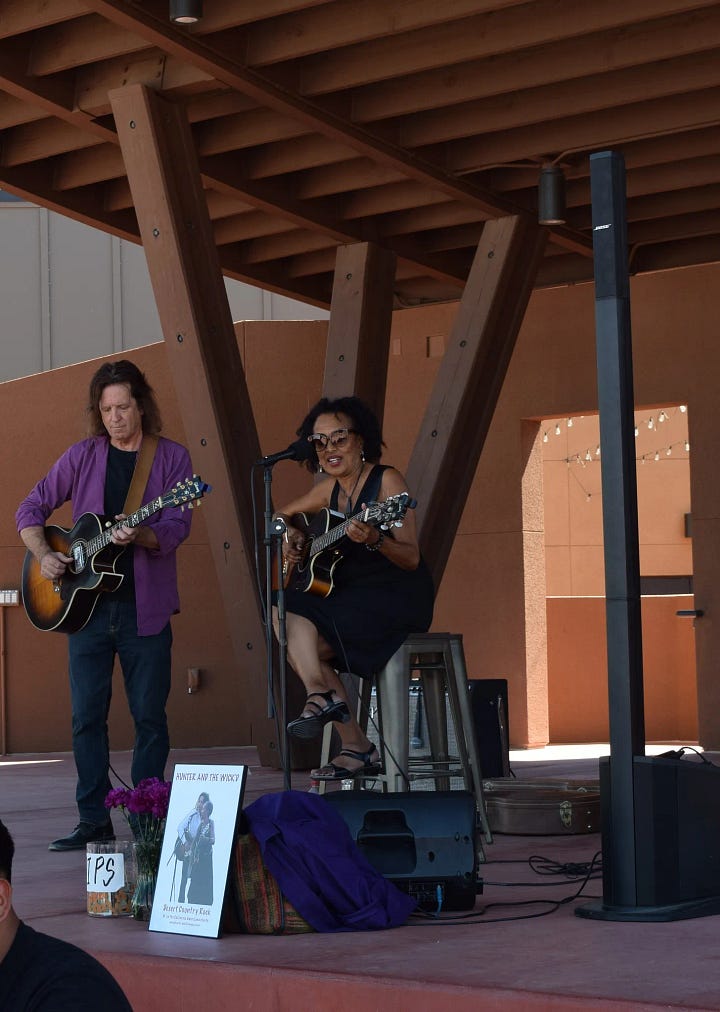
To apply for this permit, there is a commensurate processing fee2 and a $1 million minimum public liability insurance coverage requirement. These permits are authorized to be approved by the Community Development Director and do not require a public hearing. Planning Commissioners have the authority to appeal the Director’s approval if needed. Temporary Use Permits expire one year after their approval date.
The provided agenda packet does not provide specific information for this item so any proposed changes or language issues staff has for this section will be addressed in the Desert Trumpet’s meeting recap following the meeting.
3. Community Garden
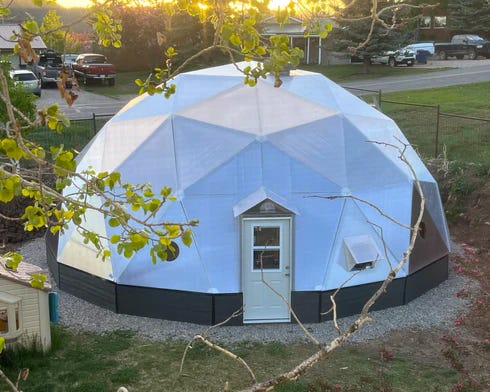
On the Healthy Places Index, which scores communities based on a number of socioeconomic factors including healthcare access, education levels, and median household income, Twentynine Palms is ranked in the bottom 10th percentile of communities statewide. Communities like Newport Beach, on the other hand, rank in the top 90th percentile.
Many would consider certain pockets of the Twentynine Palms community to be a food desert, which is a label given to many towns with these low HPI rankings. Despite the options of Stater Bros and now Grocery Outlet, along with the Twentynine Palms farmers market on Saturdays, large portions of the town still lack wide-scale access to large commercial grocers, and food access is still a struggle for many.
Those living north of Two Mile Road require vehicle transportation to reach a formal grocery store, while storefronts like Dollar General and Family Dollar primarily sell packaged, commercial-processed food and lack fresh produce options.
Talks of a local garden have been circulating for a handful of years, and they’re not just for growing food and pretty flowers—they are a way to reinforce community bonds, allowing people to meet and work with their fellow neighbors, providing a outdoor space for the community to maintain and upkeep.
Community gardens also come with education opportunities. A headline for the Mojave Desert Land Trust’s aptly named Discovery Garden, a community garden in Joshua Tree established in 2019, poses the question:
You can probably name 10 animals. But can you name 10 native plants?
Discussion of a community garden was first spurred around summer of 2024 when the City was discussing applying for an EPA grant to build a climate resiliency center. At the time, an address at 73666 Joshua Drive, a commercial building property, was listed as a potential location for this use.
To establish a community garden, an appropriate parcel would first have to be determined. This is not an impossible feat but requires funding. In the last five years, for example, the City of San Bernardino has established two community gardens thanks in part to donations from entrepreneurial philanthropists and the nearby Loma Linda University Hospital.
Locals with a green thumb understand the main issue with gardening in the desert to be heat and pests. City staff is floating the option for a greenhouse and included an image of a prefabricated ready-made grow house from Growing Spaces Greenhouses as one example. This particular model, pictured above, runs around $35,000.
No concrete plans for a community garden have been made yet. This is just a workshop to get community feedback and toss around Commissioner ideas, but one could say the metaphorical seeds are being planted.
4. Chapter 19.102: Animal Keeping
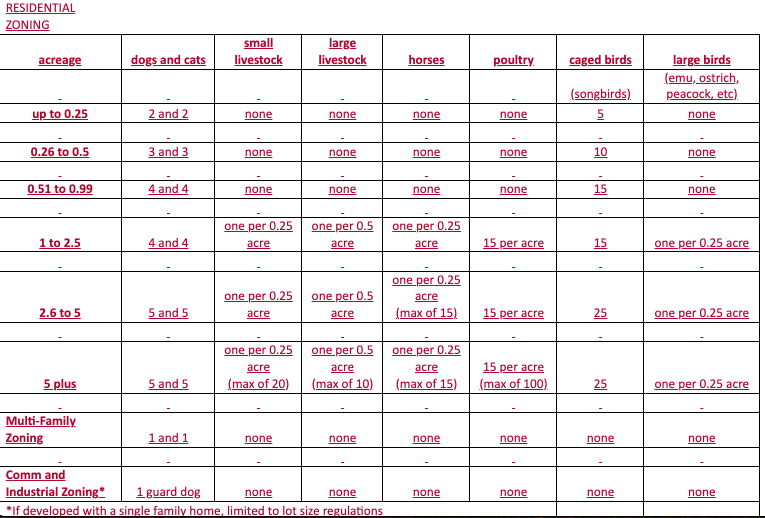
Regulations on animal keeping are addressed in the Development Code under Article 5 of the City Municipal Ordinance, Chapter 19.102. Over 20 pages of regulations on animals, pets, cages, minimum acreage and fencing requirements are codified here— there is even mention of lions and tigers (minus the bears.) This is where residents can find pet licensing and vaccination requirements, a list of prohibited animals, horse stable regulations, and animal boarding requirements.
City staff is proposing language revisions and slight changes. Examples include keeping of wild animals to require an Animal Entitlement Permit instead of a conditional use permit. According to the City Development Code, an AEP is typically approved by the City Animal Control Officer (following proper paperwork submission) that:
allows the custodian to possess exotic animals, and animal(s) in excess of the number allowed by this Chapter, up to a maximum of four (4) additional dogs and/or four (4) additional cats and/or up to two (2) additional miniature pigs.
Other changes include:
allowance of snakes up to 12 feet long (previously 6 feet)
Removal of language and density regulations for large livestock animals. (Livestock, including horses and poultry, remain prohibited on properties less than one acre.)
Removal of “Home Kennel or Cattery” provisions (according to the staff report, “A home kennel or cattery is for the private breeding of dogs or cats, not for the commercial kenneling of dogs or cats owned by other persons.”)
Horse density allowance of up to 15 (previously 6)— one horse per quarter-acre allowed, with a max of up to 15 horses per parcel when not combined with other livestock.
Establishment of a 10-acre minimum property size for parcels that operate horse boarding facilities.
The meeting will take place at 6136 Adobe Road. See you there!
NOTE: Desert Trumpet staff members Cindy Bernard, Kat Talley-Jones, and Heidi Heard live in the Indian Cove neighborhood, adjacent to the Ofland development project, and are on the organizing committees of Indian Cove Neighbors and Say No to Ofland. Read our policy for covering Ofland here.
Leave your thoughts in the comments below. Please note that we do not allow anonymous comments. Please be sure your first and last name is on your profile prior to commenting. Anonymous comments will be deleted.
Feel free to share this article!
Help us reach our 2025 goal of $10,000 in subscriptions! Upgrade to a paid subscription for just $5 per month or $50 per year.
Would you care to donate more than $100? Our Paypal account is up and running!
Minutes for the previous meeting are summarized into a brief 5-page report. The meeting exceeded three hours and featured over 40 public comments. For full discussion details, check out the meeting video available here.
Temporary Use Permits cost $159.78 for private property or $391.87 for activity on public property such as that of the Farmers Market, according to the City Fee Schedule.


Not to sound like a broken record but boy I'm thankful I live in the county.